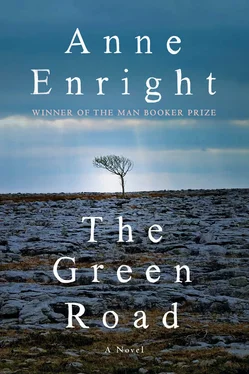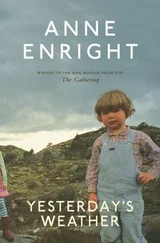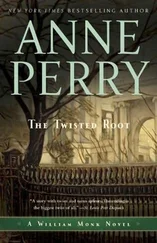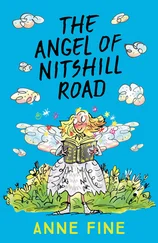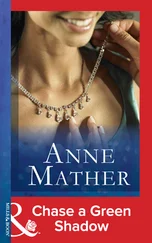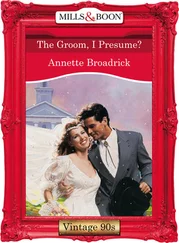‘As the crow flies,’ said Rosaleen, only to hear an embarrassment of silence around her. The radio dead. Not even a cat, curled up in the chair.
‘Oh, little Corca Baiscinn,’ she said, also out loud, and looked to the darkening window where her reflection was beginning to shadow the pane. Or someone’s shadow. An image thin and insubstantial, like something that happened in the camera once, her dog superimposed on the view of St Peter’s Square, after her mother died, when they went to Rome. And the dog, who missed them terribly, came through the photographs, running towards them on the green road beyond Boolavaun.
Rosaleen looked to the window and stood to her full height.
‘Oh, little Corca Baiscinn, the wild, the bleak, the fair!
Oh, little stony pastures, whose flowers are sweet, if rare!’
Her voice worked perfectly. Rosaleen set the cards on the table and sat down to write.
The kitchen was the easiest room in the house, with the heat of the range and two windows, one facing south and the other west. But it was November, and there were days when she filled a hot water bottle just to make it down the hall. Outside, she had a winter flowering cherry set against the silhouetted winter branches, but it would not bloom for many weeks yet. Meanwhile, she had no evergreens, for being too depressing, and every November she thought about a blue spruce, or those needle-thin Italian pines, and every November she decided against. It was an Irish garden. A broadleaf garden, except for the monkey puzzle at the front of the house. Straggly now — there were dead and half dead branches for fifty feet or more, but it was her father’s tree and nothing gave her more pleasure. The monkey puzzle was allowed, as Dan used to say.
‘That’s allowed.’
Ah. But was talking aloud allowed ?
Rosaleen smiled. She picked up one of the cards and saw it again through Dan’s eyes. Because it was Dan — of course it was — who sent the postcard of the woman in the red room. It had lived on the fridge door for years. Dan, she thought, would like the little red Christmas card, that made no claims, that was innocent and tasteful enough. For an utterly pretentious boy, he was very set against pretension. Much fuss to make things simple. That was his style.
And it was also her style. Rosaleen opened the card to check. ‘Beannachtaí na Nollag’ the greeting said, in Irish, which was all lovely and just right for an American mantelpiece, whatever his mantel looked like these days. Granite, perhaps. Or none, the fireplace a simple square cut in a white wall. Rosaleen set the card flat and lifted her pen with a flourish — a special gel pen she had bought in the new supermarket.
‘My darling Dan,’ she wrote, and then she paused and looked up.
After a moment she saw what her eyes lingered upon: a shelf for the radio and for bills, and above that, a clock stopped these five years or more, the face sticky with cooking grease. The wall itself was a dusty rose, a colour which was unremarkable most of the day and then wonderful and blushing as the sun set. Like living in a shell. Under that was the 1970s terracotta, Tuscan Earth it was called, up on a chair herself, coat after coat of it, to cover the wallpaper beneath, fierce yellow repeats of geometric flowers that kept breaking through. And under the wallpaper? She could not recall. The whole place should be stripped and done properly or — better yet — the wall turned to glass, dissolved: it would be a kind of rapture, the house assumed into heaven. Like who? Our Lady of Loreto, of course. Her house flying through blue Italian skies. The patron saint of air hostesses everywhere. Because Everywhere is the place that air hostesses like to be.
There was nothing that lifted Rosaleen’s heart like the sight of a plane in the summer sky.
She looked down at the white paper on the table in front of her, and the writing on it — her own writing. ‘My darling Dan’.
Dan would love a glass wall at the back of the house. Dan would strip back the old paper, he would paint the place ‘winter lichen’ or ‘mushroom’. When he worked in a gallery they painted the place every six weeks he said. He would get professionals in to do it, so the lines would be true.
Rosaleen picked the paper up and turned it over again. It was his Christmas card and he would like it. Dan liked simple things. He would be over forty now. He would be forty-four in August. Her son was forty-three years old.
Rosaleen tried to think what he might look like, this very minute, or how he looked the last time he made the trip home, but all she could remember was his smooth eight-year-old cheek against her cheek. Her blessed boy. He was so happy up against her, never pulled away. And he smelt of nothing, not even himself. Leaves, maybe. Rust. Boys were easy, she always thought. Boys gave you no trouble.
‘I think of you often,’ she wrote. ‘And just as often I smile.’
They were another planet. Surrounded by their own sense of themselves; their faces englobed, she thought, in their boyhood beauty. They wore their maleness as a gift.
What did you do today? Nothing. Where did you go? Nowhere. Though that was more Emmet’s style. Dan told you everything except the thing you needed to know. The schoolmaster’s shoes with the secretly stacked heels, the local woman gone up to Dublin to be in the audience for The Late Late Show . Dan was a master of irrelevance.
‘I miss your old chat,’ she wrote.
Dan’s eyes, Emmet’s eyes, as they looked at their mother, playful and impenetrable. Two sets of green, flecked with black. Stones under bright water.
She could still see them asleep, each in their beds as she passed their bedroom doors. Emmet under a hundred blankets. Dan sprawled, agape, a kind of push in him, even then, as though dreaming impossibilities. He slept like a shout. And as soon as he got the chance, he was gone.
The whole night long we dream of you, and waking think we’re there, —
She indulged herself a moment, pictured him sitting across the room from her, with a newspaper, perhaps, a cup of tea. It gave her a pang, just to catch the edge of it. An imagined life. Dan and herself somehow together in this house with their books and their music. The old style.
Vain dream and foolish waking, we never shall see Clare.
The world she grew up in was so different it was hard to believe she was ever in it. But she was in it, once. And she was here now.
Rosaleen Considine, six years old, seventy-six years old.
Some days, it wasn’t easy to join the dots.
She had not redecorated the bedrooms, upstairs. They were still the same. The same quilt on Dan’s bed. It was there now, if she cared to go up and look at it. The side lamp he found all by himself down in the local hardware, coming home excited, at what age? Eleven. Excited by a lamp. A print by Modigliani of a naked girl leaning on to her hand. And, in Emmet’s room, a big map of the world, the countries pink, green, orange and lilac. Yugoslavia. USSR. Rhodesia. Burma. When they grew up, Dan went everywhere, and Emmet, she liked to say, went everywhere else. But Dan always sent a message home.
‘All my love,’ she wrote. And then looked at what she had written. She underlined the word ‘All’ with a strong stroke of the pen: once, twice, a little wiggling tail on this second line, trailing down the page.
‘Your fond and foolish Mother, Rosaleen.’
The card went into its envelope. She tucked the flap in, turned it, pristine, and smoothed it down before writing ‘Mr Dan Madigan’ on the other side. Then she propped the envelope up against the little stainless steel teapot. His address was on a piece of paper in the drawer. Toronto. That was where he was. Or Tucson. One or the other. She did not know how he lived, but there were always rich people around him. At least that was the impression he liked to give. That he was thriving in some way that was beyond her understanding.
Читать дальше
